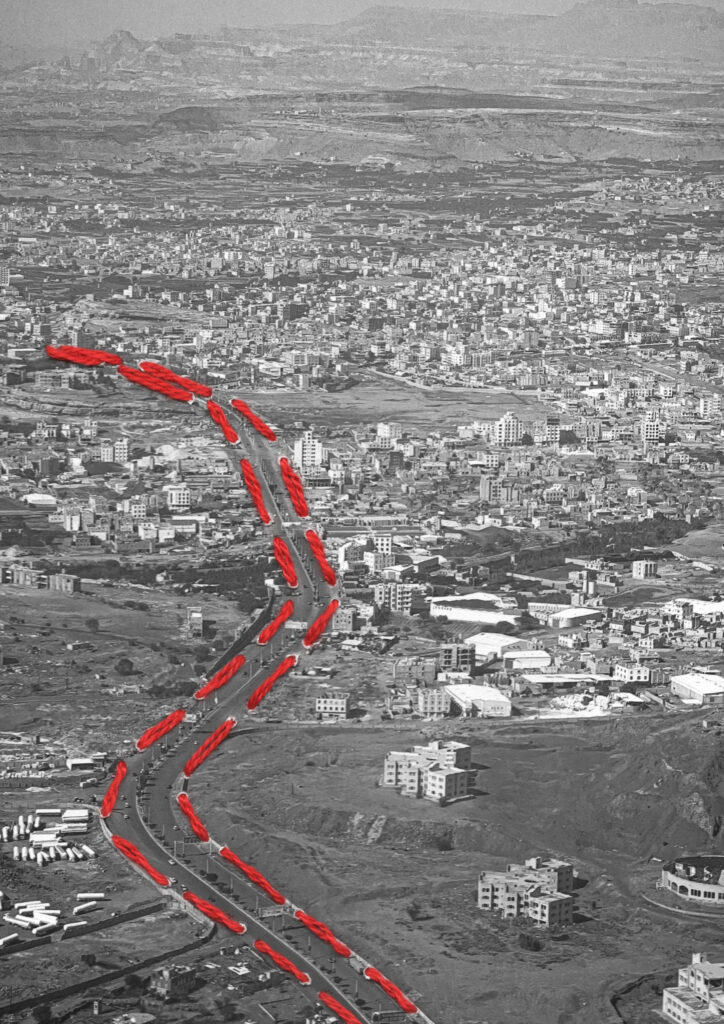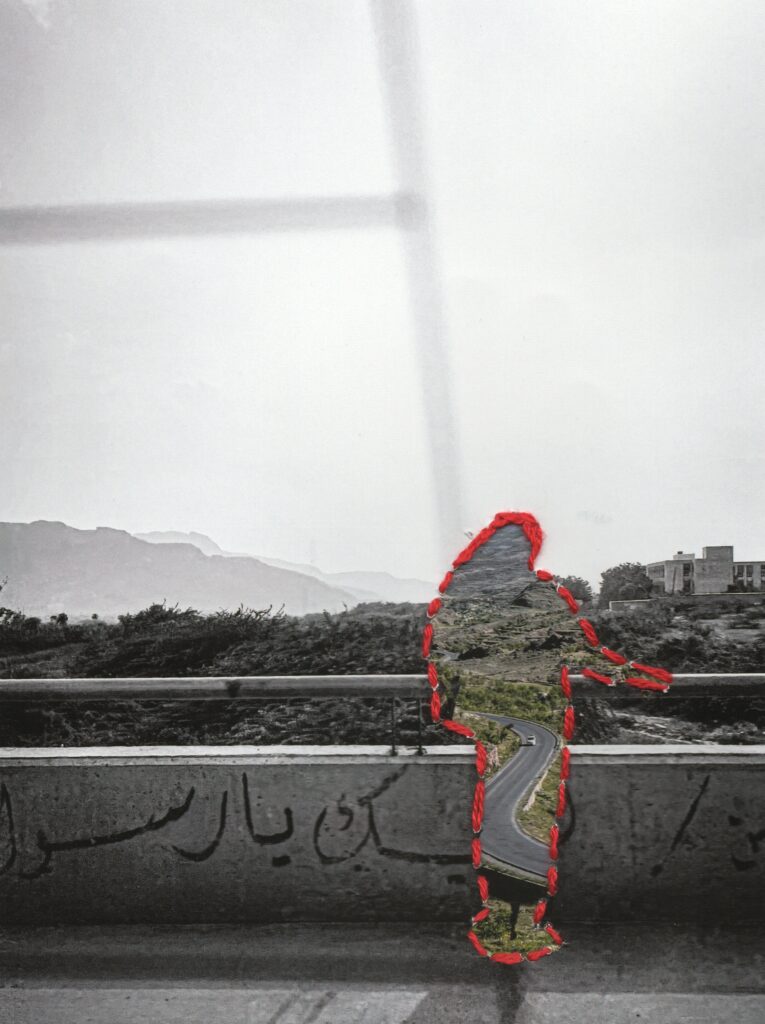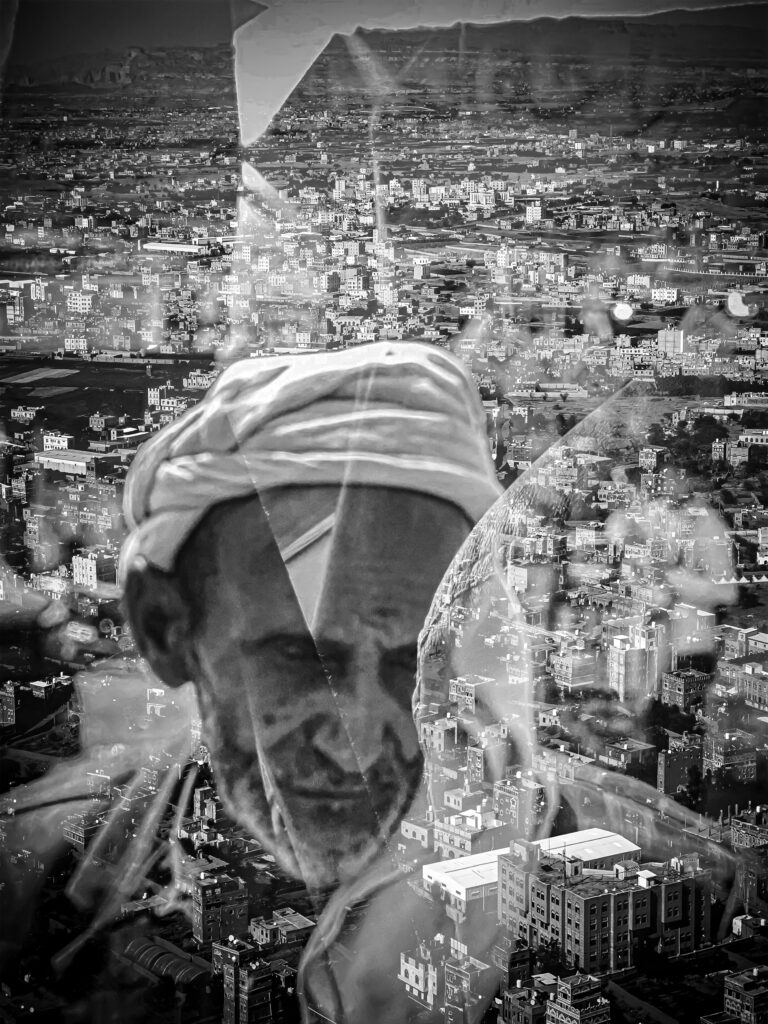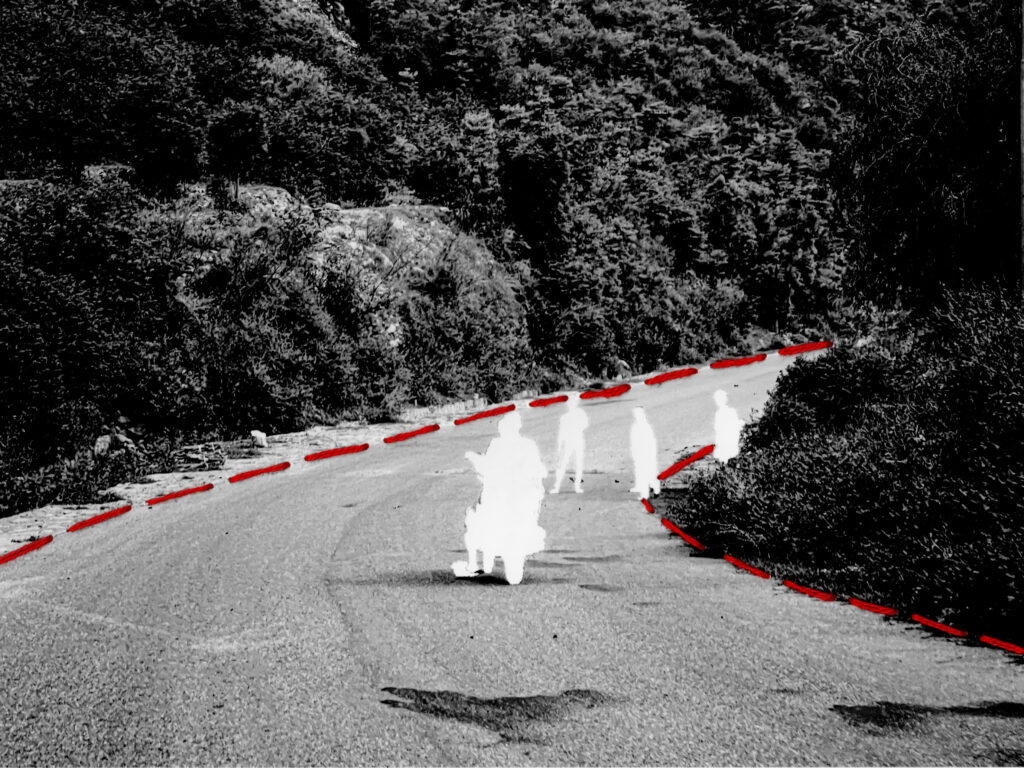Revisioning Roads
Revisioning Roads
This art work is part of the Science Communication for Social Cohesion and Inclusion in Yemen project and was created by the participants of the workshop and the Yemeni artist Sadiq Al-Harasi.
Since 2014/15, Yemen has lived through a devastating conflict that has had a profound impact on the society’s social fabric. The war has exacerbated existing divisions and created new ones, leading to a sense of isolation and fragmentation among Yemenis. In this context, the “Revisioning Roads” project seeks to explore the potential of roads as a medium of cohesion and coexistence.
Yemen’s roads have long been a vital part of the country’s infrastructure, connecting its diverse communities and facilitating trade and travel. These roads have enabled the movement of people, goods, and ideas, fostering a sense of shared identity across the country.
The “Revisioning Roads” is an artistic photographic project that aims to reimagine roads as facilitators of cohesion and coexistence, highlighting their role as spaces of movement and shared experiences. The project aims to show that roads can be places of coexistence and understanding by portraying them as inclusive spaces for people from different regional, cultural, and political backgrounds. This is achieved through photography and stitching/embroidery techniques, which symbolize cohesion. The roads in the project are free from any political, religious, or geographic considerations and are depictedas spaces for movement, mobility, and connectivity.
The project’s goal is to show that roads can be a force for good, bringing people together and fostering understanding and reconciliation. It aims to redefine the narrative of roads and movement as a physical action, focusing on the human connections and shared experiences that occur on our roads.
Changes occur around the road,
Yet the road remains the same…
It remains the way and the destination.





Here you can find the digital zine of the project in Arabic, Englisch and German.
The Road Remains the Same
Qasim Abdu
“We have full trust in Yemeni women.” He was speaking with a firm and strong voice. “Yemeni women are known for their manners and morals, and Yemeni men are known for their valor and gallantry. We do not live in a jungle. We live in a country that protects everyone and preserves equal rights for all; and not in a country that legalizes the oppression of the strong against the weak.”
“Who is this person?” I asked my sister, who was sitting beside me, joining the crowd’s applause.
“The new person in charge,” she answered, continuing to applaud fervently.
“And even if the world is a jungle, if a hyena thought to attack a woman, a thousand Yemeni lions will stand up for her. We trust our women. We trust our men. We trust our principles and values that have made us an example to other parts of the world, which used to hinder women’s movement and their freedom. We trust our customs and traditions that have made any woman feel safe in a Yemeni man’s presence through space and time. So what has changed that made them come up with the mahram decision?,” he asked with determination and strength, amidst louder applause from the men as they shouted: “Nothing has changed in us!”
I felt the applause rise, penetrating my head and forcing me to open my eyes.
“Come on, get up, you have an appointment to obtain a mahram travel permit” my sister said, clapping near my face to wake me up.
It was merely a dream.
“This is all for your protection,” a woman in the office said while reviewing all my papers before leaving for the manager’s office.
“From whom am I being protected?,” I wondered to myself. This permit is only intended to be presented at the security checkpoints located on the road when traveling by car between Sana‘a and Aden through the territories within their jurisdiction. However, it does not apply outside of Yemen, where I am currently heading via Aden airport. Therefore, I questioned who or what I am being safeguarded from.
“Why aren’t any of her male relatives accompanying her? Is it important? Are you sure of your approval to let her travel outside Yemen? Is it crucial?” The manager kept asking my father one question after the other while examining the papers that supported the reasons for me to travel.
He told my father that numerous women come to this official department to obtain travel permit without a male guardian (mahram). He informed us that his task is to judge, based on appearance, whether these women are qualified to travel alone. He mentioned that there was a conspiracy that is targeting Yemeni women to make them work for hostile entities and that many of them eventually end up in famous hotels engaging in prostitution.
My father bowed his head, gazing at the ground with humiliation.
“Why aren’t men targeted?,” I asked myself.
At the security checkpoint outside Sana‘a, a soldier exclaimed with triumphant enthusiasm: “Women alone in the car without a mahram!” Other soldiers quickly gathered around, demanding the vehicle to pull over.
They calmed down once the driver showed them my no-mahram permit. They also respected deeply the non-Yemeni passport of my friend, who holds another nationality besides the Yemeni one, due to her mother being non-Yemeni.
“Unlucky for her, she does not need their permit or protection”. We tried to make fun of the incident. “Or maybe it is only Yemeni women, who are, in their mind, unqualified in their behavior, and undeserving of travelling alone.” I gazed to the road. The roads can understand my feeling of humiliation.
“Nothing has changed.” I remembered that sentence from my dream. The road has not changed. The road that I have always traveled between our Yemeni governorates during my works remains the same. I know it by heart. It turns right from here, turns around from there, then straightens from there. So how can my little brother protect me when I know the road better than him?
Roads do not change, however, indeed there are many things that have changed over the past 13 years (since the Arab Spring revolution and Houthis taking the rule. We called it “change revolution”. People have changed, their mentality has changed and with it have changed their thoughts and beliefs.
But the road remains unchanged. It respects the people, not the paper. It respects women and those who know and understand the road.
People and their emotions revolve around the road in moments of joy, sadness, longing, reunion, and leaving. At this turn, I felt sad to leave my family but enthusiastic to start a new journey. The same turn also felt my joy and happiness when I came back home for a visit. The road reads us well. It was always people, their feelings, and the road. The road is the true friend, the true companion.
Changes occur along the road, movement occurs on the road, yet the road remains the same, immovable… it remains the way and the destination.
Qasim Abdu is the pseudonym of a female writer residing in Sana‘a.
